Supporting student-centered Jewish education
Collaborative Innovation Cohort
A professional development program offered by BetterLesson & the Mayberg Foundation to support Jewish Day Schools during the 2025-26 school year
The Jewish Education Innovation Challenge (JEIC), supported by the Mayberg Foundation, is offering subsidies for Judaic Studies and Ivrit teachers to access BetterLesson coaching and PD—enhancing Jewish studies by increasing students’ active engagement in the learning process.
BetterLesson is excited that your school will be participating in one of two cohorts, both focused on student-centered learning: the Collaborative Innovation Cohort and/or the Coaching Cohort.
👉 See additional information about the cohorts
How it works
Coaching participants work closely with their BetterLesson coach to identify a focus area and outcomes for their coaching experience.
BetterLesson Coaches lead one-to-one coaching, providing educators with expert guidance and a safe space to explore new concepts or skills within a focus area. These strategies offer students the opportunity to explore, inquire, and self-assess while building meaningful connections and accountability in their learning.
They then apply those principles in practice, creating actionable and sustainable changes in their classrooms.
Collaborative Innovation Cohort
The Collaborative Innovation Cohort combines professional learning with ongoing support via Coaching and Learning Walks. Each school partners with the Mayberg Foundation for a package including:
Fully Funded by Mayberg ($13,000)
- 5 Short Cycle (4 sessions) coaching seats for Judaic Studies teachers of your choice
- 1 Short Cycle (4 session) coaching seats for a leader of your choice
- Mid-year onsite Learning Walk
- Follow-up Learning Walk strategy session
- End of pathway school celebration
School Funded ($7,000):
- In-person teacher Workshop OR onsite Learning Walk coaching launch
Coaching Cohort
The Coaching Cohort drills in on responsive one-to-one coaching for educators and leaders. Short cycle (4 sessions) coaching seats are available in this cohort at a 50/50 funding split with the Mayberg Foundation.
Contact Kirk Jones at kirk.jones@betterlesson.com for more information.
See the Participant Guidelines and contact Kirk Jones at kirk.jones@betterlesson.com with questions
Coaching for teachers
Leverage our national network of instructional coaches to provide one-to-one support for all educators, tailored to their individual context and experience.
Your BetterLesson Coach will:
- Introduce you to 4-6 strategies to increase student-centered learning
- Support you to increase Differentiation in the classroom, such as in the use of Choice Boards, Station Rotation, Y charts, and more
- Support you in techniques to build classroom community such as enhancing student commitments, strong transitioning between classroom activities, and smooth parent/student/teacher communication
- Capture notes in your online BetterLesson workspace, summarizing your accomplishments and logging next steps in the Try-Measure-Learn process

Success Stories
Facilitating Differentiation in Hebrew & Jewish Studies
For more than 8 years, BetterLesson Instructional Coaches have embarked on a transformative journey with educators specializing in Hebrew and Jewish Studies for grades K-5 Jewish Day Schools in the Miami area. Remarkable success stories emerge from this collaboration every year, and we are delighted to share a few today that highlight the facilitation of highly effective differentiation in a widely diverse student body.
Blowing Differentiation Out of the Water
Blowing Differentiation Out of the Water
A Hebrew language teacher who struggled with vast levels of heterogeneousness in Hebrew language classes is now exploding with differentiation ideas. When BL coach Shelley Kniaz began working with her participant, the teacher shared that she ‘teaches to the middle,’ so that every student receives a bit of attention. However, some students were bored, and others were lost. By leveraging BetterLesson coaching resources such as Differentiation with Grouping, Mild, Medium & Spicy, and Micro-grouping to Provide Feedback, the teacher witnessed a significant shift in Hebrew acquisition for all levels, now even reaching students at much younger ages. Station Rotations were implemented in every class, with clear goals and outcomes in skill, content and value in each class, along with reading, writing, listening and speaking activities on different levels. Protocols and smooth transitions were implemented moving through each station, with clear and measurable check-in’s. Students began looking forward to their various group activities, making suggestions of their own to tweak them, which the teacher incorporated to even further success.
Students on different levels of fluency in Hebrew began improving at their own level and at their own pace, leading to feelings of accomplishment and joy through creative group activities.
The teacher shared her growth reflection in her own words:
“When we started, I was in limbo -- I have a very heterogeneous group by levels, so nobody was getting the level they needed. Now they are. We actually changed the room to accommodate our separate groups by level. I have a co-teacher so we can "divide and conquer". We use our respective talents & gifts -- she is great at teaching through song, for example. We switch groups so all students benefit from having two teachers. We also have incorporated new teaching materials (books, app and media) recommended by my coach that are level-appropriate. They are using some of the same materials, but are moving at very different speeds.”
Enhanced Parent Communication and Program Development
Enhanced Parent Communication and Program Development
Shelley's dedication to coaching extended beyond the teacher's classroom. She guided the teacher to expand parent communication. The teacher was supported in her work on the EdJEWcation entrepreneurial program, a collaboration with CAJE, MindCET (Israel) and The Hebrew University, to develop tools to integrate Jewish Studies into the General Studies curriculum with resources such as an integrated lesson plan database and a crowd-sourced Q & A platform. These resources not only benefit the teacher's school, but have the potential to impact Jewish schools worldwide.
Strategy Used: Communicating with Families
Transformative Teaching Approaches and Support
Imagine a young Rebbi in a Yeshivish lower school, eager to make a positive impact but lacking formal training in pedagogy, particularly in lesson planning. Determined to be more proactive in structuring his lessons, he embarks on a journey of growth with the guidance of a supportive mentor, Instructional Coach Rebecca Coen. Together, they utilize the JDS Lesson Plan Template to systematically navigate the process of lesson planning.
By embracing this organized approach, the Rebbi gained clarity in articulating goals for each lesson, including specific outcomes and ‘I CAN’ statements, and implementing student -centered activities that got students up and out of their seats to create storyboards, play vocabulary games, strategies outlined in the template. Success is measured not only by the completion of lesson plans but by the tangible impact on student learning. As his lessons became more structured and purposeful, students were more engaged, and learning outcomes were elevated.
Coach Yaakov Shafferman shared a similar story in that he encouraged music as a learning tool, and though the teacher didn’t view himself as being particularly very musical, agreed to implement the activity to include music. The activity was hugely successful and students began making their own requests, which the Rebbi tried to incorporate as much as possible. Students were engaged, learning outcomes were elevated, and the Rebbi reflected to Yaakov that going slightly out of his comfort zone made him a stronger educator.
Strategies Used: Movement Makes Memories, Classroom Management Reconsidered
Do teachers and students clearly understand what individual students know and what they need to know? What can students already do and what do they need to learn how to do? Which concepts do they understand and which do they have yet to understand? And most importantly, can teachers and students document and monitor student growth?
A limmudei kodesh (Jewish Studies) teacher realized that instead of knowing what his students knew and how they were progressing in their learning, he was making assumptions. Working with BetterLesson Coach Nathan Fein to develop a system of assessment to allow him to track students’ growth over time. He created spreadsheets that tracked learning growth and quickly identified students whose progress did not meet expectations toward desired outcomes. Two amazing changes resulted: - He provided targeted interventions which supported students to achieve mastery of topics they had not yet mastered, and he was proactively prepared to use his documentation of growth over time to provide specific, meaningful and individualized learning progress information to parents during Parent / Teacher Conferences. Two wins resulting from one significant change in instructional practice!!
Strategies Used: Analyzing Student Data to Inform Instruction
Coaching for leaders
Instructional leaders need support too. Pair instructional leaders with a BetterLesson Coach to build leadership capacity and support the implementation of new strategies.

Your BetterLesson Coach will:
- Introduce you to 4-6 strategies to launch and continuously support curriculum implementation, ensure diverse student groups have access to the tools and resources required to achieve educational success or create data-driven systems for accelerating learning and closing academic gaps.
- Support you to prioritize, implement, and create realistic doable, and actionable items from your responsibilities.
- Support you in techniques to facilitate PD, design or oversee the design of curriculum and its successful implementation, enhance smoother parent/student/teacher communication, and enhance and support your staff’s mental paradigms, performance, and productivity.
- Take notes in your online BetterLesson workspace, summarizing your accomplishments and reminding you of your next steps in the Try-Measure-Learn process.
Success Stories
Leading Leaders
Leading Leaders
How to provide support to new teachers when you have never been a coach or mentor before? BetterLesson Instructional Coaches provided strategic support for a new supervisor, motivating this menahel (principal) was tasked with coaching one teacher, and the supervisor did not feel comfortable with this role. His reluctance stemmed from feeling uncomfortable “making the teacher feel like a failure” if the menahel shared comments about improving student engagement, which the teacher sorely needed support for. The menahel shared with his coach that he preferred that the teacher come to him with questions to improve his teaching practice. The coach set up a series of steps and protocols to create a communicative and transparent relationship: setting up regular times to meet, with a clear agenda and goals of their meetings. The menahel and mentee have developed a positive working relationship already showing progress: they established goals and protocols to gather data from his class, taking attendance & marking tardiness (a big problem in his school), clear outcomes towards academic success, how to increase and measure participation & engaged students, and qualitative data from teacher and from surveys of students/exit tickets. Their relationship has grown closer, students are more engaged, and more importantly, there is now a system with which they can communicate to address issues. Both are empowered and excited to continue working together to improve student engagement.
Strategies: Going Macro: Developing a Vision
Empowering Educators for Collective Growth
Empowering Educators for Collective Growth
These stories exemplify the power of deliberate, proactive, and innovative change strategies in promoting successful learning experiences. By embracing structured lesson planning, differentiated instruction, and data-driven decision-making, educators can create vibrant learning communities where every student has the opportunity to thrive.
These transformative stories reinforce our belief that 1:1 coaching provides a unique safe space for teachers and leaders to step outside of their comfort zone with guidance and innovate with their practices. See Dr. Atul Gawande’s view of coaching here.
As we continue on this journey of educational excellence, let us empower educators to explore new approaches, collaborate with peers, and prioritize the needs of their students. Through sustained, collective effort and a commitment to growth, we can cultivate vibrant learning communities where success is not just a goal but a shared reality for all.
A special thanks to BetterLesson Instructional Coaches facilitating Florida Jewish Day School coaching: Shelley Kniaz, Sarah Golubchik, Leah Herzog, Joan Vander Walde, Rebecca Coen, David Saltzman, and Yaakov Shafferman. Thank you to the participating Miami Jewish Day Schools: RASG, Scheck Hillel, The Gordon School, Yeshiva Elementary School, Toras Emes Toras Chaim, The Innovative School.
Special thanks to CAJE and the Mayberg Foundation for their generous support of Professional Development to these Jewish Day Schools.
- More details about the BetterLesson Coaching Cohort here.
- More details about a subsidized Learning Walk here.
- Check out the BetterLesson Toolkits here.
Resources: BetterLesson strategies on differentiation

Mild, Medium, and Spicy Strategic Grouping
Use formative data, benchmark data, and observation data to group your students into three proficiency levels.

Choice Boards
Give students autonomy and choice in their learning while allowing teachers to differentiate, observe, and assess in real-time.

W.I.N time
Try the W.I.N. (Whatever I Need) To Practice strategy to give students a structured approach to choice in what they work on in class.
Featured BetterLesson Coaches
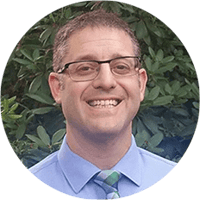
Rabbi Dr. David Saltzman
Rabbi Dr. David Saltzman has taught and led Jewish Day Schools for over 25 years. He is currently the Director of Teaching and Learning and Assistant Principal at Yeshiva of Flatbush in Brooklyn, NY. David holds a Masters in Jewish Education and an Ed.D in Jewish Administration.
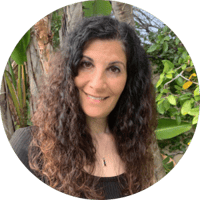
Rebecca Coen
With over 12 years as a school administrator, leadership coach and consultant, as well as over 18 years as a classroom teacher, Rebecca Coen brings a history of successful educational leadership in diverse educational settings and communities. Every summer, for the past 12 years, Rebecca facilitates in the Programs in Professional Education (PPE) at Harvard University’s Graduate School of Education.
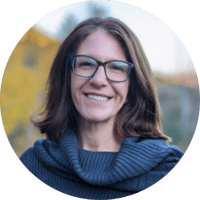
Dr. Sarah Rubinson Levy
Dr. Sarah Rubinson Levy has an undergraduate degree in business and sociology and holds a Master of Jewish Education degree from Hebrew College, a doctorate in education from Northeastern University, and certificates in Advanced Jewish Studies, Day School Education, and Jewish Educational Leadership. Her areas of focus include progressive/student-centered education, integration of artificial intelligence into education, and teacher professional development and support.
.png?width=200&height=200&name=rabbi-yaakov-shafferman%20(1).png)
Rabbi Yaakov Shafferman
Rabbi Yaakov Shafferman is the Principal of the Hebrew department at Jesode Hatora School in Antwerp, Belgium. And was principal of the Jewish School of Basel the same school where he had studied in his childhood. Yaakov has facilitated training for hundreds of Jewish educators online and in person in 5 countries, in 3 languages.
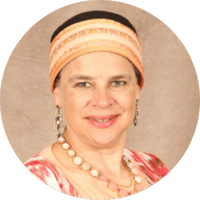
Leah Herzog
Leah Herzog has taught and led Jewish identity and day school experiences for Jewish Day Schools and Congregational Communities for over 35 years. She holds an M.Ed. in Educational Psychology as well as an M.Ed. in Educational Administration. She is a certified guide for the Bible Lands Museum in Jerusalem.
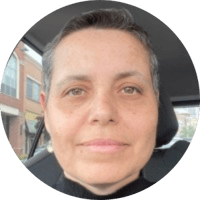
Ketty Granite
Ketty Granite is the developer and writer of the Granite Ivrit Hebrew curriculum that is currently taught in dozens of schools throughout the world. She is an educator, mentor, and trainer to teachers and administrators, facilitating the professional development of Hebrew as a second language and pedagogy. Ketty also has a Master’s Degree in Educational Management from The Hebrew University of Jerusalem and a second Master’s degree in Teaching Hebrew as a Second Language and Israeli Culture from Middlebury College.
Participant Guidelines
JEIC is investing resources in your training and commits to providing you with outstanding support with world-class expert coaches to inspire you to lead and teach with excellence and professionalism.
Your participation in this program indicates your agreement to the requirements listed here. For any questions, please contact Kirk Jones at kirk.jones@betterlesson.com.
Participant Expectations
All participants will be expected to:
- Schedule and attend 30-minute virtual coaching sessions every two weeks for the duration of your coaching cycle
- Review the workspace your BetterLesson coach will design with you.
Equipment Essentials
You will need:
- Functioning device, computer or tablet, - ensure that the built-in mic and camera are working
- Earbuds with a microphone if you are sharing space
- Wifi and a quiet space for your sessions. Best to complete your sessions at home or school (not cars, doctor’s offices, etc.)


